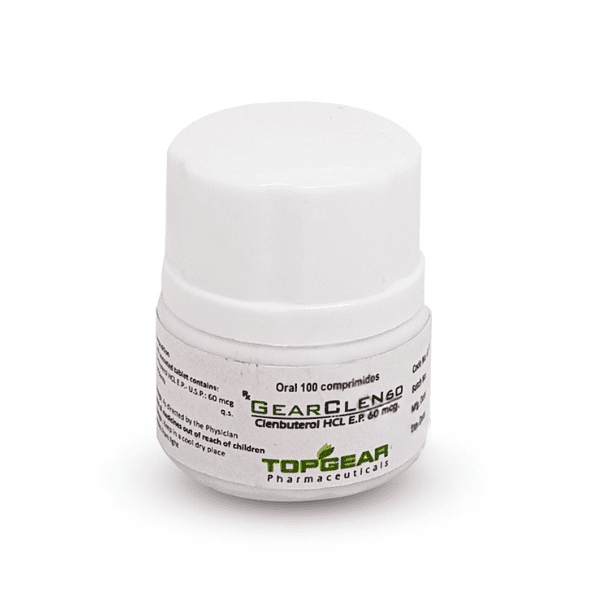Mechanism of Action
Clenbuterol functions as a beta-2 adrenergic agonist, stimulating beta-2 receptors in the smooth muscle of the airways. This stimulation leads to bronchodilation, easing breathing in individuals with obstructive airway conditions. Furthermore, Clenbuterol has been observed to possess anabolic properties, potentially increasing muscle mass and reducing body fat, which has contributed to its off-label use in sports and bodybuilding.
Indications
Clenbuterol is prescribed for the following conditions:
- Asthma and COPD: Clenbuterol is prescribed to alleviate bronchospasm and improve airflow in patients with asthma and chronic obstructive pulmonary disease.
- Off-label Use: Some athletes and bodybuilders use Clenbuterol for its potential to enhance performance and promote fat loss. However, such use is not approved by regulatory authorities and may carry health risks.
Dosage and Administration
The recommended dosage of Clenbuterol varies based on the individual’s condition and response to treatment. For respiratory conditions, dosages typically range from 20 to 40 micrograms per day, administered orally. It’s crucial to follow a healthcare provider’s guidance regarding dosage to minimize the risk of side effects.
Side Effects
Common side effects of Clenbuterol may include:
- Tremors
- Increased heart rate (tachycardia)
- Nervousness or anxiety
- Headache
- Muscle cramps
Serious side effects can occur, particularly with misuse or overuse, and may involve:
- Cardiac arrhythmias
- Elevated blood pressure
- Electrolyte imbalances
- Potential myocardial ischemia
It’s essential to use Clenbuterol under medical supervision to mitigate these risks.
Precautions
- Cardiovascular Health: Individuals with a history of heart disease or hypertension should use Clenbuterol cautiously, as it can exacerbate these conditions.
- Electrolyte Monitoring: Regular monitoring of electrolyte levels is advisable, as Clenbuterol can lead to imbalances.
- Pregnancy and Lactation: The safety of Clenbuterol during pregnancy and breastfeeding has not been established; its use is generally not recommended in these populations.
- Drug Interactions: Clenbuterol may interact with other medications, including beta-blockers and certain antidepressants, potentially altering its effects. Consulting a healthcare provider before starting Clenbuterol is crucial.
Legal Status
The legal status of Clenbuterol varies by country. In some regions, it is approved for veterinary use but not for human consumption. In others, it is banned due to safety concerns. Athletes should be aware that Clenbuterol is listed as a prohibited substance by the World Anti-Doping Agency (WADA) and is banned in most professional sports.
Frequently Asked Questions (FAQ)
1. Is Gearclen 60mcg safe for human use?
While Clenbuterol is approved for veterinary use, its safety and efficacy in humans have not been conclusively established. Misuse or unsupervised use can lead to serious health risks.
2. Can Clenbuterol be used for weight loss?
Clenbuterol has been reported to have fat-burning properties; however, its use for weight loss is not approved and may pose significant health risks.
3. What are the signs of Clenbuterol overdose?
Symptoms of overdose may include severe tachycardia, chest pain, seizures, and loss of consciousness. Immediate medical attention is required if these symptoms occur.
4. How should Clenbuterol be stored?
Clenbuterol should be stored in a cool, dry place, away from direct sunlight and out of reach of children.
5. Is Clenbuterol detectable in drug tests?
Yes, Clenbuterol can be detected in urine tests, and its use is prohibited in competitive sports.






Reviews
There are no reviews yet.